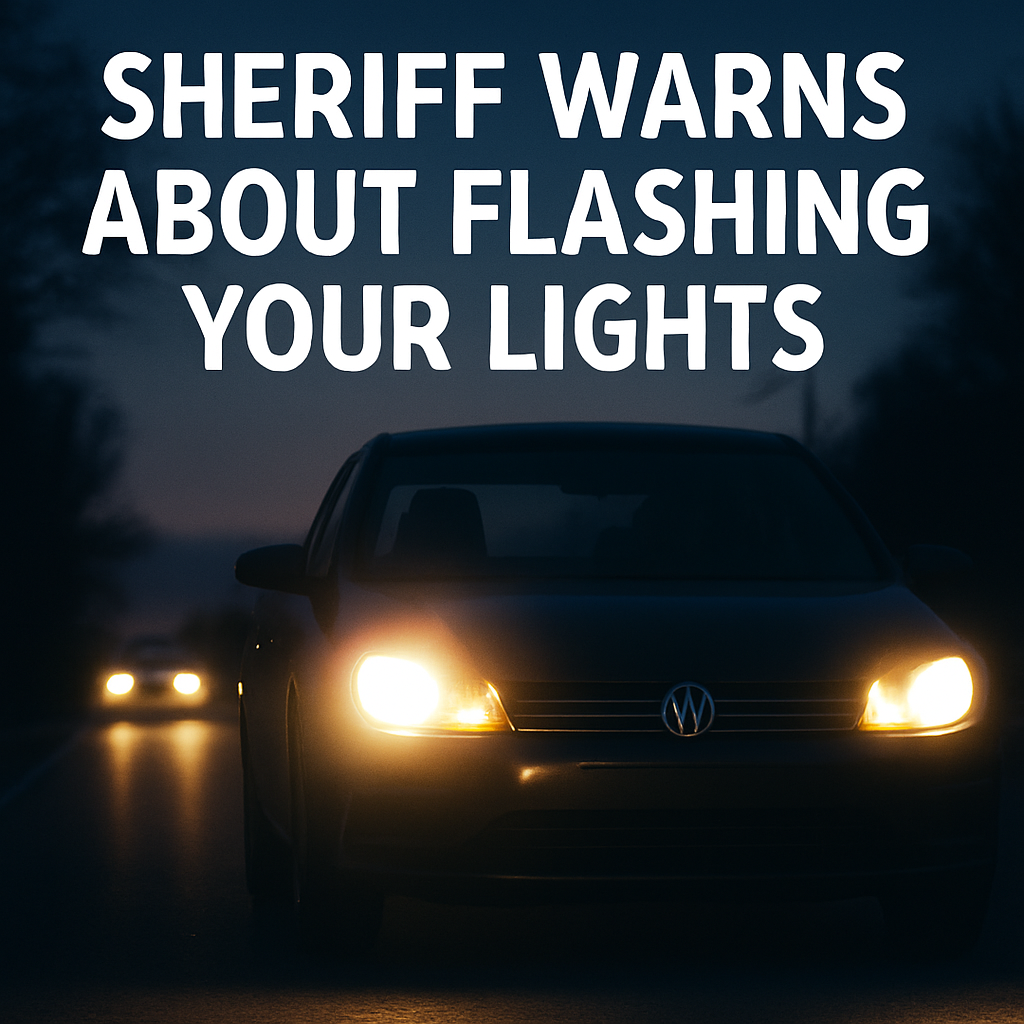In a small town in West Virginia, a police chief is sparking a heated debate with a surprising warning about a common driving habit: flashing your bright lights to alert other drivers of speed traps or police presence. Barrackville Police Chief Charles Wilson recently took to Facebook to share a powerful message, urging drivers to reconsider this practice, which many see as a harmless act of courtesy or free speech. According to Wilson, this seemingly innocent gesture could have far-reaching consequences that put public safety at risk.
In his post, Chief Wilson explained that flashing your brights to warn others of law enforcement could inadvertently help dangerous drivers evade capture. He pointed out that this action might assist individuals who are driving under the influence, fleeing from a crime scene, or engaging in illicit activities. “While your intention may be to exercise your right to free speech and warn others of a potential fine, it is essential to consider the potential consequences of your actions,” Wilson wrote. His message is clear: what might seem like a small act of rebellion or camaraderie could unintentionally enable someone posing a serious threat to the community.
Wilson’s plea asks drivers to weigh their desire to signal a speed trap against the possibility that they could be aiding a reckless or criminal driver. “Refraining from flashing your lights in that situation will contribute to a safer community and may ultimately help to save a life,” he added. It’s a sobering reminder that our actions on the road can have ripple effects beyond what we might initially consider.
In West Virginia, flashing bright lights to communicate road hazards or speed traps is generally considered protected under free speech laws, as it is in most states. However, there are specific regulations in place regarding the use of headlights. For instance, West Virginia law imposes restrictions on the color and direction of bright headlights, but there’s no specific statute dictating how they can be used or limiting their brightness. This legal gray area makes Wilson’s warning all the more intriguing, as it challenges drivers to think beyond the law and consider the ethical implications of their choices.
This issue isn’t just a local concern—it’s a topic that resonates with drivers everywhere. How many of us have flashed our lights to warn oncoming traffic of a speed trap or a road hazard? It’s a common practice, often seen as a way to stick it to “the system” or help out a fellow driver. But Chief Wilson’s perspective forces us to question whether this habit is as harmless as it seems. Could that quick flash of your brights allow a dangerous driver to slip through the cracks? It’s a question worth pondering.
The Barrackville Police Department’s post has already sparked discussions online, with some drivers defending their right to flash their lights and others agreeing with Wilson’s call for caution. As this story gains traction, it’s sure to ignite a broader conversation about road safety, personal responsibility, and the unintended consequences of our actions behind the wheel.
What do you think? Is flashing your brights a harmless act of free speech, or could it really put your community at risk? Drop your thoughts in the comments below, and let’s get this debate rolling! Don’t forget to share this post with your friends to see where they stand on this surprising controversy! 🚨
Source: WBOY



